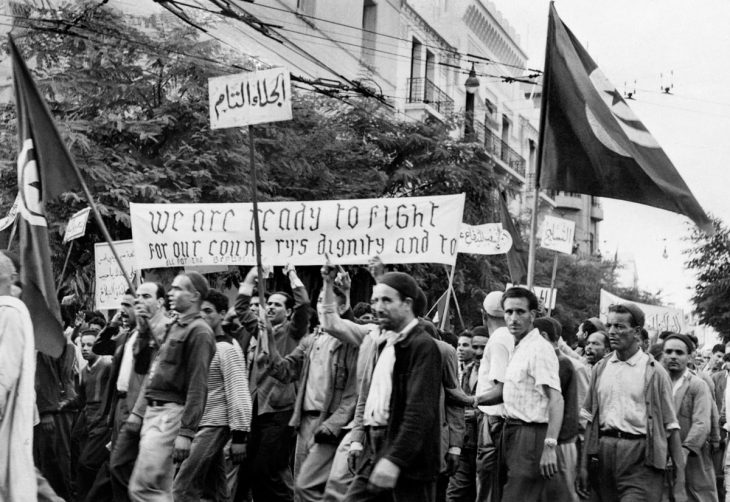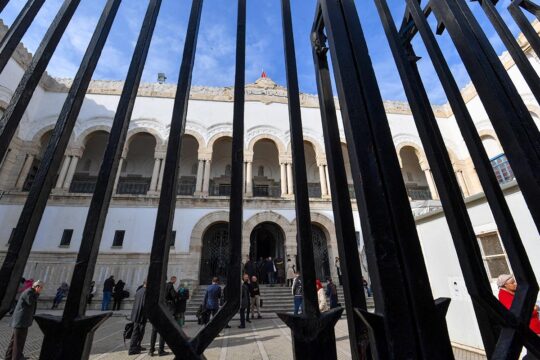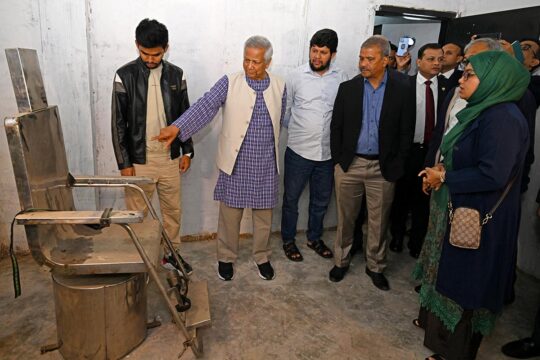“Massive violations of human rights were committed by the French army in the period from March 1956 to July 1961, leaving more than 7,000 Tunisian victims,” says the Commission in a memorandum addressed to the French president on July 16. This estimate is based on investigations, testimonies of survivors of the liberation war and archive documents. The Truth Commission has received 5,052 complaints, three of which are collective. 650 are linked to the Bizerte battle in 1961, while others concern Sakiet Sidi Youssef, Gafsa, Tataouine, the mountains of the southeast and southwest, and other sites where battles took place between rebels allied to Ben Youssef, opponent of Bourguiba, and the French army after independence.
The president of the Commission had already announced in a Justiceinfo.net interview last April that she planned to ask for more money for the Dignity Fund, a fund dedicated to reparations for victims of the dictatorship in Tunisia, notably from France.
And so on July 16, the Commission sent two memorandums via the Ministry of Foreign Affairs, one addressed to the French President and the other to the heads of the World Bank and International Monetary Fund (IMF). The Commission is seeking reparations for Tunisian victims of human rights, economic and social rights violations, for which it says the French State, the IMF and the World Bank bear "a share of responsibility".
Colonization and terror
The Commission memorandum says that France employed “a strategy of impoverishment of the peasantry and extreme taxation of the population” and “economic exploitation of the country's mineral and agricultural wealth” which was devastating for Tunisians. The 1952-1954 policy of terror, at a time when the national movement was pushing for Tunisia's independence, led to mass arrests, torture and collective reprisals where looting and rape of women were common. After independence in March 1956, Tunisia still continued to suffer from French domination over its economy, according to the Commission, with the former colonial power seeking to "perpetuate the advantages of certain French companies".
For all these abuses, the Truth Commission demands that France acknowledge the facts, apologize officially, pay compensation to individual victims, to victim regions and the Tunisian State, return the Tunisian archives from 1881 to 1963 and cancel Tunisia's bilateral debt, "given that it is an illegitimate debt". The memorandum adds that "the estimate of damages should be assessed within the framework of a commission to be set up for this purpose". In her interview with Justiceinfo.net, Commission president Sihem Bensedrine suggested a sum of "200,000 dinars [63,600 euros] per person killed".
The tragic policies of financial institutions
The memorandum to the IMF and World Bank refers to another historical period, running from the 1970s to the Revolution of January 2011. The two financial institutions are accused of having pushed the Tunisian government to freeze wages, reduce subsidies on basic consumer goods and freeze recruitment in the civil service. These policies led to several social crises, including conflicts with the trade union movement in 1978, the bread revolt in December 1983-January 1984, the mining region uprising in 2008 and the 2011 Revolution. These bloody events resulted in serious human rights violations: death, injury, torture, rape and imprisonment following unfair trials.
The Commission has received a collective complaint by the Tunisian Trade Union Federation on behalf of trade union victims, and 909 individual complaints relating to these events. With regard to the bread riots, the Commission has received 1,230 individual complaints, relating to cases in 19 governorates with 85 murders, 213 gunshot wounds, 932 arrests and imprisonments with systematic use of torture, as well as several rapes of minors, including in prison.
"Regarding the impact of World Bank and IMF intervention on the human, economic and social rights of Tunisian citizens, the Commission concluded that not only the Tunisian State was responsible for these serious violations but also the World Bank and IMF, which through loan conditions and structural adjustment plans imposed inappropriate policies that were at the root of the serious violations that followed the popular uprisings," the memorandum explains. And at the end of the document the Commission calls for three acts of reparation: apology; the payment of financial compensation to the victims and the State; and the cancellation of Tunisia's multilateral debt.
Unprecedented request
There is no obligation on France, the IMF or the World Bank to compensate for damage done in the past. In its arguments, however, the Truth Commission refers to international conventions and pacts. In particular, it cites the "Basic principles and guidelines on the right to a remedy and reparation for victims of gross violations of international human rights law and serious violations of international humanitarian law", a resolution adopted by the United Nations General Assembly on 16 December 2005. It also refers to the International Covenant on Civil and Political Rights, adopted by the General Assembly on 16 December 1966, and the United Nations Resolution of 21 March 2016 on "the effects of foreign debt and other related international financial obligations of States on the full enjoyment of all human rights, particularly economic, social and cultural rights".
There is no precedent in the world for such a procedure, hence the scepticism of its critics. On top of that is the incessant conflict between the Truth Commission and the Tunisian authorities. The current government, led by Youssef Chahed, still has not published the Commission’s final report in the Official Journal. It does not appear ready to support the two requests made by the Commission and signed by its president.







